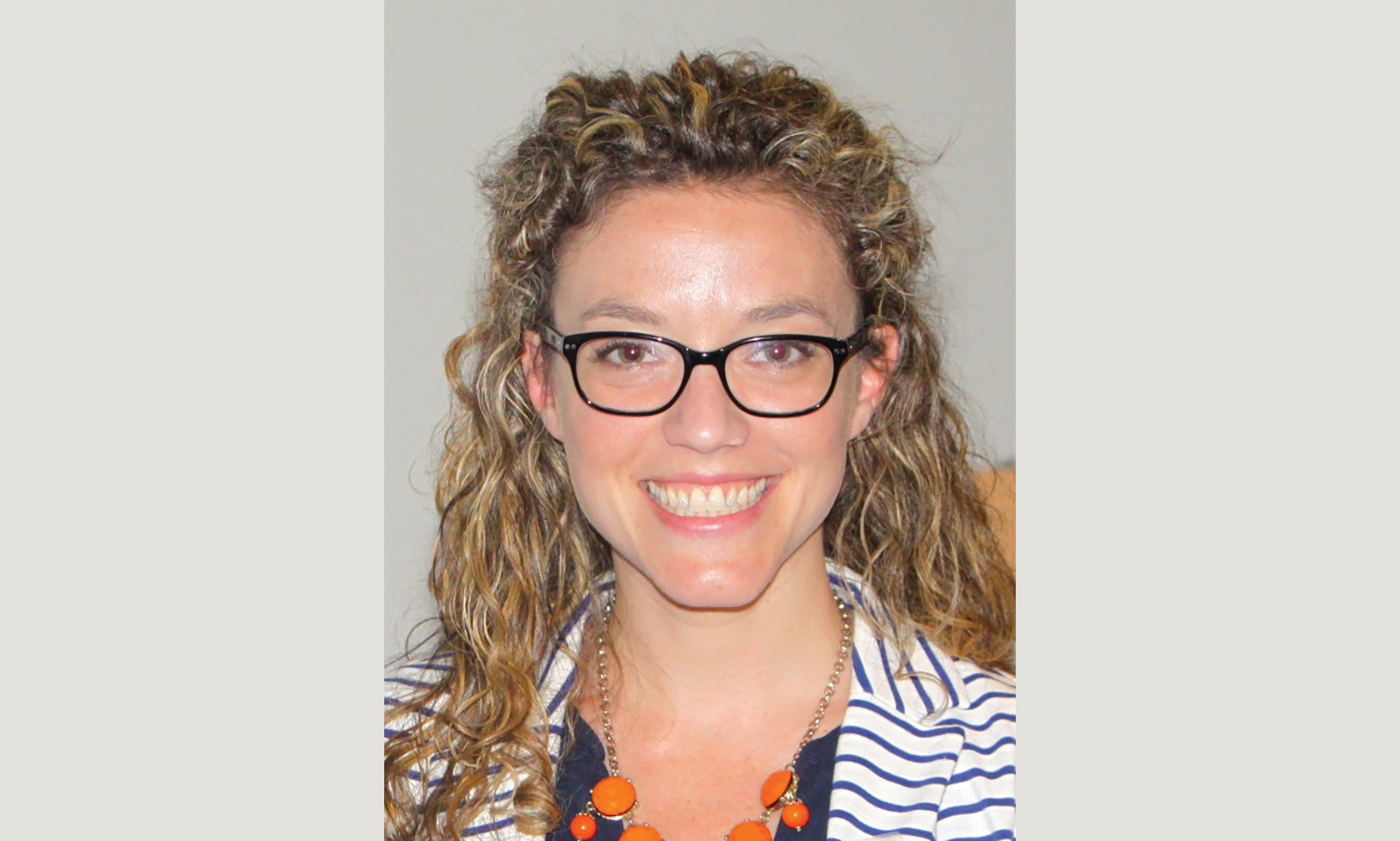Norwalk Attorneys Score State Dept. of Education Ruling for Students With Disabilities
Attorneys representing children and families in the city of Norwalk have secured an order from the Connecticut State Department of Education ordering local schools to correct deficits in access to special education services.
July 19, 2019 at 10:34 AM
5 minute read
 Attorney Kathryn Meyer of the Center for Children's Advocacy.
Attorney Kathryn Meyer of the Center for Children's Advocacy.
Attorneys representing children and families in the city of Norwalk have secured an order from the Connecticut State Department of Education ordering local schools to correct deficits in access to special education services.
In an October 2018 complaint, Norwalk attorney Robin Keller sought action from SDE's Bureau of Special Education on behalf of 17 students, alleging numerous violations including failure to meet student needs for services due to an assortment of systemic faults. Fourteen students ended up in the final combined complaint.
Among the students were four preschool students represented by attorney Kathryn Meyer of the Center for Children's Advocacy. Special education advocate Jill Chuckas also joined Keller and Meyer in filing the complaint, which alleged violations of state and federal laws.
In individual summaries for each of the students, complainants outlined numerous delays and failures to provide assessments for Norwalk students seeking special education services. Staff members at local schools conveyed confusion to parents about the application process—in particular through unclear residency requirements—and frequently denied services to children following evaluations.
“CCA and SEEK file this complaint as organizational complainants against Norwalk Public Schools on behalf of students with suspected disabilities who NPS has failed to evaluate and/or identify for special education eligibility and related services through an Individualized Education Plan, and students with IEPs who are denied a free and appropriate public education,” the complaint stated.
Attorney Meyer said Thursday that parents of children with disabilities have been waiting as long as two years for a resolution to problems with school services. “Obviously this took a long time, and we've had some pretty eager clients wanting to see what the result was going to be, so we're happy to share with them some pretty encouraging news,” she said.
Meyer was contacted by parents who were seeing a pattern of referrals not being accepted for individual services, she said. “There are very strict federal and state guidelines about these things and they were not moving forward,” she said. “I interviewed all the parents and decided to represent them. We were able to put together something that showed this was a systematic pattern of disorganization and conflicting messages as to how the referral process should go.”
Specific cases in the complaint, with student names redacted, indicated assessment meetings were being delayed, rescheduled and canceled. When the meetings did take place, parents were not getting their children's problems resolved, the suit said. “At the end of the day, responsibility lies with the school district to follow the timelines and determine if special education is needed or not,” Meyer said.
 Attorney Robin Keller
Attorney Robin KellerThe State Department of Education agreed, ordering Norwalk Public Schools to review all preschool referrals received during the 2017-2018 school year and to provide the department with documentation of the dates of receipt and processing. “Further corrective action may be ordered,” the ruling added.
Meyer noted that three of the four preschool students she represented were Spanish-speaking, which was a complication for families seeking special education services. “No one who's tried to navigate the special education system will say it's simple or uncomplicated. Then you add a language barrier, and that further complicates the problem,” she said. The school system, meanwhile, was facing inadequate resources, “and a lot of ineptitude and a lot of miscommunication,” Meyer added.
The Department of Education reported that it conducted interviews with district staff, who “described different and inconsistent procedures for the referral process.” The state also concluded the district failed to keep accurate records for children receiving special education.
The department ordered Norwalk schools to provide speech and language services and compensatory hours of education to students who did not receive needed support. The department also directed the school system to review its system for providing disabled students adequate time with nondisabled peers and ordered staff training on the educational needs of preschool-age children with autism-spectrum disorders.
Recommendations included training for student placement meetings and progress reports, as well as staff monitoring to ensure proper delivery of special education services.
The state's report is final and not subject to appeal pursuant to the complaint resolution process.
In a statement emailed to the Connecticut Law Tribune, Norwalk Public Schools Chief Communications Officer Brenda Wilcox Williams said the district took independent steps prior to release of the state's findings, including revising preschool referral procedures and related services, particularly special education, and has implemented a strategic supervision plan for special education. “The district is in full agreement with the procedural recommendations made, which are consistent with our ongoing work to improve delivery of special education services,” she said. “We look forward to working collaboratively with our families.”
This content has been archived. It is available through our partners, LexisNexis® and Bloomberg Law.
To view this content, please continue to their sites.
Not a Lexis Subscriber?
Subscribe Now
Not a Bloomberg Law Subscriber?
Subscribe Now
NOT FOR REPRINT
© 2025 ALM Global, LLC, All Rights Reserved. Request academic re-use from www.copyright.com. All other uses, submit a request to [email protected]. For more information visit Asset & Logo Licensing.
You Might Like
View All



Federal Judge Approves Harvard's Dismissal of Chip-Patent Suit Against Samsung
2 minute readTrending Stories
- 1The Law Firm Disrupted: Scrutinizing the Elephant More Than the Mouse
- 2Inherent Diminished Value Damages Unavailable to 3rd-Party Claimants, Court Says
- 3Pa. Defense Firm Sued by Client Over Ex-Eagles Player's $43.5M Med Mal Win
- 4Losses Mount at Morris Manning, but Departing Ex-Chair Stays Bullish About His Old Firm's Future
- 5Zoom Faces Intellectual Property Suit Over AI-Based Augmented Video Conferencing
Who Got The Work
J. Brugh Lower of Gibbons has entered an appearance for industrial equipment supplier Devco Corporation in a pending trademark infringement lawsuit. The suit, accusing the defendant of selling knock-off Graco products, was filed Dec. 18 in New Jersey District Court by Rivkin Radler on behalf of Graco Inc. and Graco Minnesota. The case, assigned to U.S. District Judge Zahid N. Quraishi, is 3:24-cv-11294, Graco Inc. et al v. Devco Corporation.
Who Got The Work
Rebecca Maller-Stein and Kent A. Yalowitz of Arnold & Porter Kaye Scholer have entered their appearances for Hanaco Venture Capital and its executives, Lior Prosor and David Frankel, in a pending securities lawsuit. The action, filed on Dec. 24 in New York Southern District Court by Zell, Aron & Co. on behalf of Goldeneye Advisors, accuses the defendants of negligently and fraudulently managing the plaintiff's $1 million investment. The case, assigned to U.S. District Judge Vernon S. Broderick, is 1:24-cv-09918, Goldeneye Advisors, LLC v. Hanaco Venture Capital, Ltd. et al.
Who Got The Work
Attorneys from A&O Shearman has stepped in as defense counsel for Toronto-Dominion Bank and other defendants in a pending securities class action. The suit, filed Dec. 11 in New York Southern District Court by Bleichmar Fonti & Auld, accuses the defendants of concealing the bank's 'pervasive' deficiencies in regards to its compliance with the Bank Secrecy Act and the quality of its anti-money laundering controls. The case, assigned to U.S. District Judge Arun Subramanian, is 1:24-cv-09445, Gonzalez v. The Toronto-Dominion Bank et al.
Who Got The Work
Crown Castle International, a Pennsylvania company providing shared communications infrastructure, has turned to Luke D. Wolf of Gordon Rees Scully Mansukhani to fend off a pending breach-of-contract lawsuit. The court action, filed Nov. 25 in Michigan Eastern District Court by Hooper Hathaway PC on behalf of The Town Residences LLC, accuses Crown Castle of failing to transfer approximately $30,000 in utility payments from T-Mobile in breach of a roof-top lease and assignment agreement. The case, assigned to U.S. District Judge Susan K. Declercq, is 2:24-cv-13131, The Town Residences LLC v. T-Mobile US, Inc. et al.
Who Got The Work
Wilfred P. Coronato and Daniel M. Schwartz of McCarter & English have stepped in as defense counsel to Electrolux Home Products Inc. in a pending product liability lawsuit. The court action, filed Nov. 26 in New York Eastern District Court by Poulos Lopiccolo PC and Nagel Rice LLP on behalf of David Stern, alleges that the defendant's refrigerators’ drawers and shelving repeatedly break and fall apart within months after purchase. The case, assigned to U.S. District Judge Joan M. Azrack, is 2:24-cv-08204, Stern v. Electrolux Home Products, Inc.
Featured Firms
Law Offices of Gary Martin Hays & Associates, P.C.
(470) 294-1674
Law Offices of Mark E. Salomone
(857) 444-6468
Smith & Hassler
(713) 739-1250










